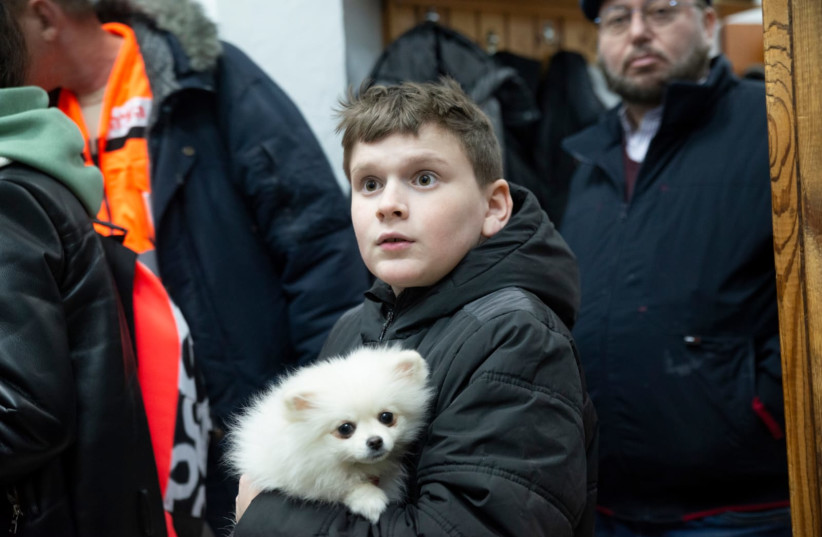Chișinău, Moldova - Rabbi Pinchas Zaltsman, the rabbi of the Orthodox community of Moldova, had never broken Shabbat before.
But this Shabbat, because pikuah nefesh (saving lives) overrides observance of the Sabbath, he drove to the Ukrainian border, took dozens of calls and texts, paid money where necessary, gave orders to cook on Shabbat for women and children and made life-or-death decisions about who to take and who to keep waiting.
He estimated that in one day he received between 400 and 500 Ukrainian Jews, gave them a hot meal and helped them find a place to stay. Dozens slept in his small synagogue or the surrounding tents built by United Hatzalah, which partnered with him in the operation.
Since Russia invaded Ukraine, he estimated that he has personally helped some 8,000 Ukrainian Jews and has spent more than $7 million. He has conducted three weddings, helped free an aguna (a Jewish woman who is “chained” to her marriage) and conducted 12 conversions with the help of the head of the Ukrainian Beit Din.
“I want the leaders of Israel to know that we did this for the Jewish people, even though we have received no money from the Israeli government and we have not been called by the foreign minister or by the finance minister, who was born here in Chișinău.”

Zaltsman has received funding from United Hatzalah, the Vienna Jewish community and the Nacht Family Foundation of Checkpoint founder Marius Nacht.
As his synagogue has become a sanctuary for Ukrainian refugees, Zaltsman told his regular congregants to stay home.
“This Shabbat we told people not to pray or eat here,” he said. “We had no idea where to put people.”
The same happened a 20-minute walk away at Chabad of Moldova on Chabad Lubavitch Street. The local residents who normally attend services and meals were temporarily replaced by Chabad rabbis of major population centers in Ukraine.
The rabbis took turns saying the Hagomel blessing (said by people who have survived a traumatic, potentially life-threatening episode) after completing the reading of the Book of Exodus. At the lunch which followed services at the synagogue, they danced in joy, thankful to God to be alive.
